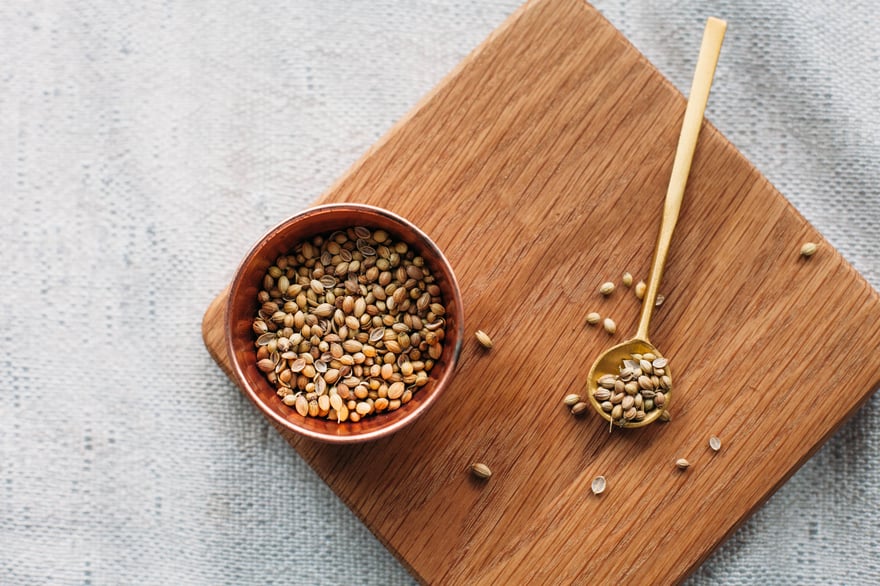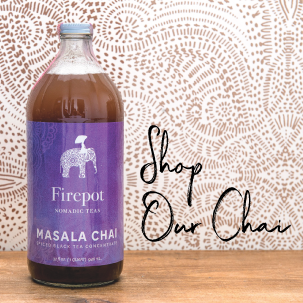Looking to add a little spice to your life? Coriander may be the perfect solution. Coriander is a spice made from the dried and ground seeds of the popular herb– cilantro! (also known as Chinese Parsley). You would never guess that such a subtle tasting spice has such profound benefits, or that the seed tastes nothing like the herb. This delicately-flavored seasoning brings along an enticing list of healthful properties.
Dating back to 5000 B.C. coriander is one of the oldest spices on record. Interestingly, coriander is even mentioned twice in the Old Testament describing the manna provided to the Jews fleeing Egypt as being like coriander seed. These tiny seeds traveled across the ocean to the Americas and became one of the first herbs cultivated by American colonists in Massachusetts.
Native to Iran, coriander seeds and the leaves were used to flavor everything from soups to salsa. It is found in the Indian spice mixture garam masala, and is also commonly used to flavor beverages such as chai. If coriander is regular part of your diet, the benefits are plentiful.

Brain Health
Science tells us that coriander is helpful in improving our brain health, and some studies suggest that the spice has anti-inflammatory properties that work as a safeguard against diseases such as Parkinson’s, Alzheimer’s and multiple sclerosis. Coriander is believed to have the ability to improve memory, and may be beneficial in managing anxiety. Another study done on migraine sufferers proved that a coriander syrup, combined with traditional medication, reduced severity, duration, and frequency of migraines. Coriander truly brings a whole new meaning to the term “Brain Food.”
Pain-Relief
New evidence suggests that the extracts from coriander produce a pain-relieving effect and reduce inflammation.
Skin Health
Our skin is our most important feature, and healthy skin allows us to look and feel better about ourselves. Coriander seeds, as well as cilantro leaves, have extracts that are found to have the ability to protect against ultraviolet B (UVB) radiation damage and may, along with proper clothing and sunscreen, help prevent or reduce sun damage to our skin. And are you suffering from dermatitis or eczema? Coriander oil, when blended with other compounds, is known to sooth and smooth irritated skin.
Fight Infections
Researchers, looking into alternative methods for treating a variety of fungal infections, have discovered that coriander is known to have antimicrobial compounds that can aid in fighting certain infections and food-borne illnesses. Amazingly, it may have the ability to fight bacteria like Salmonella.
Coriander's taste may be subtle, but it's health benefits are anything but! It’s lemony flavor and floral aroma make it popular, not just for cooking, but in pickling and brining. It’s a flexible spice with many uses, and it’s an easy spice to grow at home. We encourage you to add cilantro to your own backyard herb garden, and you can enjoy the benefits of coriander seed any time you like.







Leave a comment
Comments will be approved before showing up.